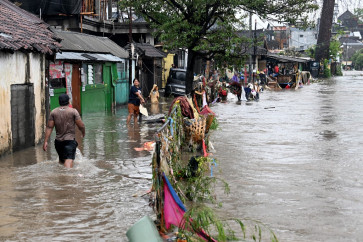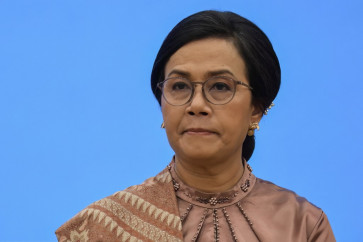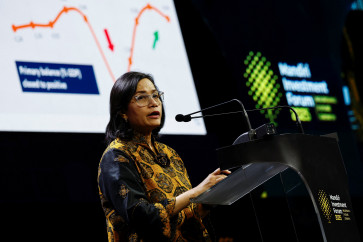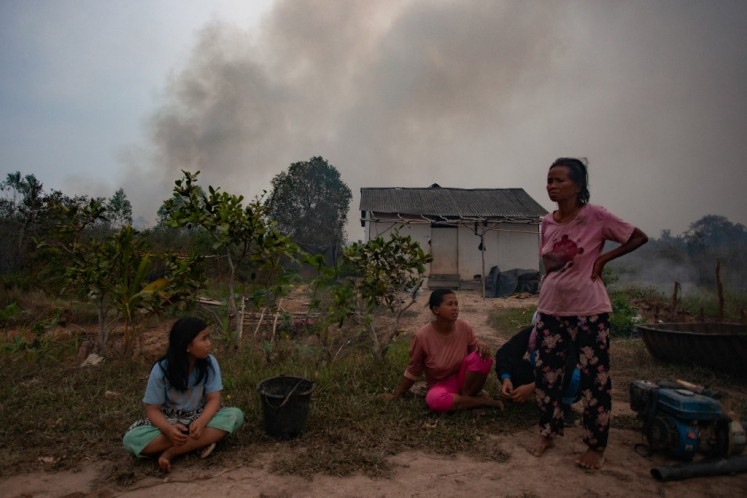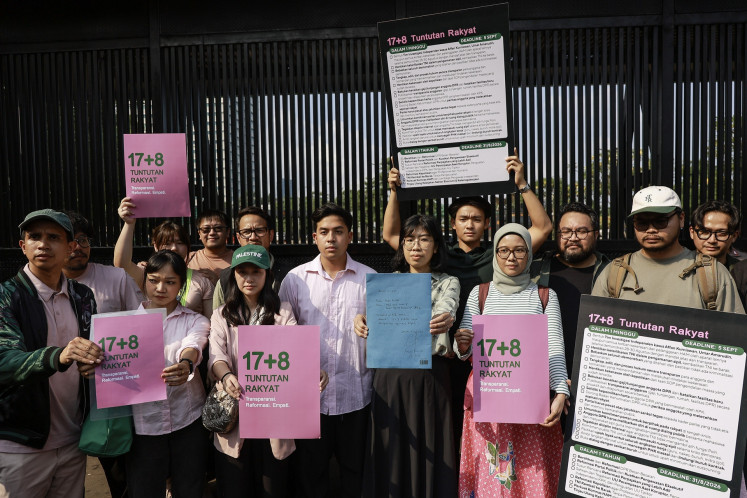Popular Reads
Top Results
Can't find what you're looking for?
View all search resultsPopular Reads
Top Results
Can't find what you're looking for?
View all search resultsSemen Gresik may leave Pati due to tough land acquisition
The country's largest cement producer, PT Seman Gresik, plans to withdraw its investment from a US$320 million plant due to the country's tough land acquisition regulations
Change text size
Gift Premium Articles
to Anyone
The country's largest cement producer, PT Seman Gresik, plans to withdraw its investment from a US$320 million plant due to the country's tough land acquisition regulations.
The company's head of communications, Saifuddin Zuhri, said the plant, located near Kendeng Mountain in Pati regency, Central Java, was expected to produce 2.5 million tons of cement annually.
"There hasn't been an agreement between the company and residents. If we can't reach a deal by the end of this month, we will walk away from Pati as there are several other regencies interested in our offer," he said.
He said the company would divert its investment to Rembang regency in Central Java or one of three other regencies in West Java.
The company has received permission from the government for 2,000 hectares, but the company only needs 1,432 hectares to build the plant. Most of the land is owned by 1,771 residents in eight villages, Saifuddin said.
"We have made proposals using every pricing standard from this years Taxable Value of Property (NJOP) to the latest real land transaction value in Pati, plus its neighboring region, Tuban regency in East Java," he said.
The taxable value in the district is around Rp 2,000 (about 22 U.S. cents) to Rp 4,000 per square meter, he said.
Semen Gresik offered Rp 10,000 per square meter for dried farmland and Rp 15,000 for farmland, Saifuddin said, but the local people asked for Rp 35,000 per square meter for dried farmland, and Rp 100,000 to Rp 150,000 for farmland.
Semen Gresik chose Pati as the plant's location because of its many advantages, including easy entry and distribution access, staff project director Suwandi said.
In 2007, Semen Gresik recorded a net profit of Rp 1,775 trillion, with its back-up liquidity being Rp 3 trillion.
Last week, U.S. energy giant ExxonMobil Corp. and state-owned oil and gas company PT Pertamina encountered land concession problems at the Cepu block, on the border of Central Java and East Java.
The problems threaten to delay the block's production of oil and gas, which is needed to help increase the country's declining oil production levels. The block is estimated to hold 600 million barrels of oil and 1.7 trillion cubic feet of gas reserves.
Chairman of the Indonesian Employers Association Sofjan Wanandi said land acquisition in the country was one of the main problems faced by investors.
Apart from opposition from local residents, the lack of land inventory management also makes land acquisition difficult for investors, he said.
"I think the records management of land transactions should be improved as they are still loose," he said.
He also urged the government to update the 1960 Agrarian Law in order to create an investment climate conducive to economic growth.
A 2005 presidential regulation on land acquisition is considered to neglect business interests due to its main focus on infrastructure development.


